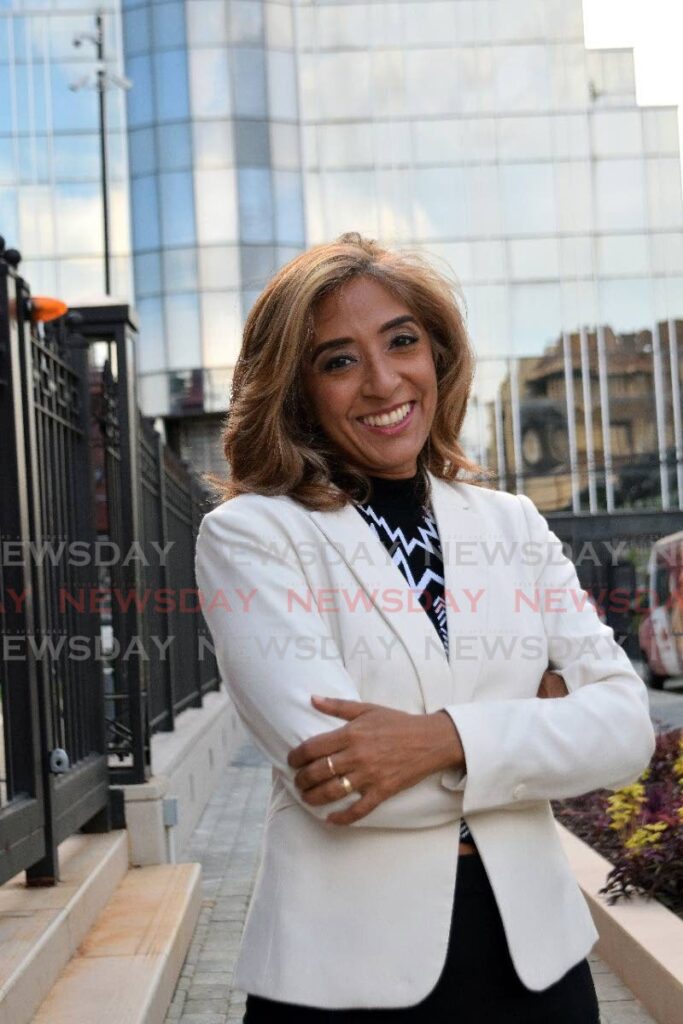Respect her for who she is

Dr Gabrielle Jamela Hosein
INTERNATIONAL Women’s Day (IWD), now being commemorated for more than a hundred years, celebrates the contributions of women and feminists to social progress. It acknowledges the issues of gender and sexuality and the political and economic struggles that still define the lives of women and girls. It affirms continued solidarity with the advancement of women’s rights.
It is a call to energise the anger, joy and hope of collective movements seeking an end to patriarchal beliefs and systems as they intersect other hierarchies, inequities, exclusions and organised forms of violence, including the violence of war and against the earth.
In short, IWD includes commemoration, celebration, revitalisation, recognition and solidarity, whether with our sisters fighting religious fundamentalism in Iran, or with indigenous women fighting for Amazonian ecosystems and their traditional ways of life, or with mothers navigating survival of their families in dangerous sea crossings from Syria to Europe or Venezuela to Trinidad.
It’s a day to also express solidarity with transwomen. Transwomen are not born female but come to identify as women at some point in their lives. They are a minority among the world’s girls and women, and face specific difficulties. These include lack of acceptance by others who mobilise stereotypes that present transwomen in terms of perversion, threat and fear, and who focus on the biological, reproductive, life cycle or social differences between transwomen and women who were born female.
Why emphasise this today? When a group understands what it means to be excluded, stereotyped and even demonised, as Caribbean women have been for centuries since colonisation, there’s greater responsibility to compassionately ensure that others live without such harm.
Second, feminist struggle fundamentally targets a binary division of sex, gender and sexuality that patriarchy, and its henchmen of homophobia, sexism, violence and the sexual division of labour, keep in place. This binary constructs us all into two sexes – male and female, two genders – feminine and masculine, and two sexualities – heterosexual and non-heterosexual.
In Western society, this binary has always reproduced women’s subordination, defining how women can appear, behave and exercise power, what labour they perform, who they can love, and how much violence (and its constant threat) they must endure. Transwomen, just like women in historical feminist struggles, are resisting that binary. We must fight side by side.
Being born female doesn’t give women a right to exclude transwomen from the category "woman". There are many kinds of women with different biological and social experiences. As well, ultimately, all women are made, not born, for we all must shape ourselves into acceptable representations of our sex or pay the costs.
Some who were born biologically female may not even wish to identify as women, but as non-binary people or as men. Those who are female and appear feminine from birth will have specific experiences of inequality and vulnerability because of their sex and gender. Others who become female or feminine at other life stages will have their own experiences. All exist. All are valid. They don’t threaten each other.
Transwomen are another manifestation of womanhood, with all its contradictions, challenges and complexities. In different contexts, many kinds of women were or are not considered real women – those who are disabled, childless, migrant, poor, black, indigenous, lesbian, jamette, masculine-appearing, in "male" jobs, big or considered fat, with too much body or facial hair, with mental illness, without a menstrual cycle or labouring as a sex worker.
This history, these contexts and the sometimes difficult conversations that are happening globally about what it means to be a woman could take a 12-week UWI course just to explain, so don’t rush to opinion if you have more to learn about debates and activism that are hugely nuanced and, ultimately, rooted in justice.
If someone identifies as a woman, even if you don’t think they should, just respect that. It’s not your journey. If someone doesn’t identify as a woman, even if you think they should, just respect that. It isn’t your journey. If someone isn’t the kind of woman we are expected to be, that too isn’t your journey.
Your journey is to create a better world where women (and people) are safe, equal, free and loved, where being female or feminine is not a source of vulnerability, exclusion or inequity, and where we transition from judging the coherence of others’ sex, gender or sexuality.
Champion the journey each woman is on to become who she is meant to be. Such loving embrace is one way to commemorate IWD.
Diary of a mothering worker
Entry 500
motheringworker@gmail.com

Comments
"Respect her for who she is"